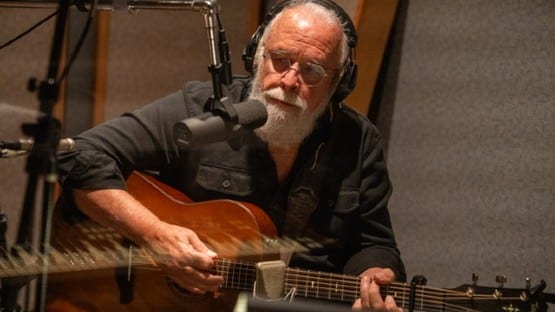
“The Moss Arts Center is a spectacular testament to how important the arts are to any university that values comprehensive excellence,” Virginia Tech President Charles W. Steger said Oct. 23, nine days before the center was to host its first performance.
Speaking in the center’s third-floor lobby, Steger said the university Board of Visitors’ recent decision to name the center in Moss’ honor was particularly fitting, due not only to her generosity toward the project, but to her prominence in the arts and her longtime advocacy for incorporating the arts into education.
Moss, who signs her paintings P. Buckley Moss, and who rose to fame after settling in Waynesboro, has works represented in more than 200 galleries, has won numerous awards, and is the namesake of a foundation that works with teachers to promote using the arts in teaching.
In her advocacy work, Moss, who is dyslexic, has cited her personal story of struggling in school until an open-minded teacher recognized her artistic potential. Moss wound up enrolling in a high school for the fine arts and, later, in New York’s Cooper Union for the Advancement of Science and Art.
“The arts can change people’s hearts, change their minds, and change their lives,” Moss said. “I was lucky enough to find them at a young age, and they opened up so many learning avenues and professional opportunities for me. That is why I am so excited about the impact this wonderful facility will make on thousands of people, young and old, across this entire region of our state.”
Moss committed $10 million toward construction of the arts center at Virginia Tech. That gift and others have been critical to funding the project, Elizabeth “Betsy” Flanagan, the university’s vice president for development and university relations, explained.
“The power of philanthropy has literally reshaped the university’s landscape, evident in this building and all across the campus,” Flanagan said, adding that the private fundraising goal of $28 million for the arts center project had been exceeded.
Designed by the award-winning architectural firm Snøhetta, the 147,000-square-foot center is located near the corner of the Alumni Mall and North Main Street.
On Nov. 1, Philip Glass and his ensemble will give the first performance in the Anne and Ellen Fife Theatre, located within the Moss Arts Center building’s Street and Davis Performance Hall. Along with that performance space, the center contains visual arts galleries, an experimental venue known as the Cube, and extensive studio space for educational and research activities.
“The scope and scale of the work we now can bring to campus is unprecedented in this region,” said Ruth Waalkes, the university’s associate provost for the arts, who is also executive director of the Center for the Arts at Virginia Tech, which is responsible for programming and operations within the new facilities.
Waalkes also said the center will bring “new opportunities for learning, discovery, and engagement for our students” and will make “world-class arts experiences accessible and affordable for people across the region.”
Increasing the prominence of the arts at Virginia Tech was a goal Steger – who has announced he will step down once a new university president can be hired – outlined in his 2000 inaugural address.
At the naming announcement, he described the Moss Arts Center as symbolic of a much broader effort that has included the addition of the Institute for Creativity, Arts, and Technology; construction of Theatre 101; the addition of several graduate degree programs in the arts, renovation or construction of learning spaces for arts programs; and the hiring of additional faculty.
“This magnificent building shows the value we place on the arts at Virginia Tech, and is part of a series of major investments we have made in the arts,” Steger said.
Launched in 2005 as an arts initiative, Virginia Tech Arts encompasses all efforts within departments and colleges and at the university level to expand creative practice and support interdisciplinary learning, engagement, and discovery through the arts. The cornerstone project of Virginia Tech Arts is the Moss Arts Center, which houses the Center for the Arts at Virginia Tech professional presenting program; the university-level Institute for Creativity, Arts, and Technology; and television and lab spaces for the Department of Communication.










